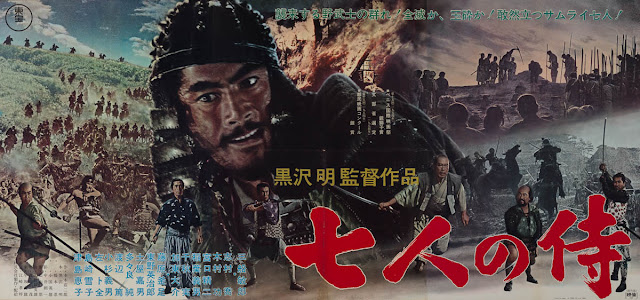Spider-Man: Into the Spider-Verse (Dir. Peter Ramsey, Robert Persichetti Jr. & Rodney Rothman, 1h 57m)
That this is the first Marvel-related film since the death of the beloved Stan Lee, starring not one but six versions of arguably his most famous creation, Spider-Man, is oddly appropriate. Spider-Man: Into the Spider-Verse is more than just a fitting tribute to a fallen creator, though,juggling various versions of the friendly neighbourhood webslinger in a taut, joke and pathos-heavy picture that pits newcomer Miles Morales, and five other versions of the superhero, including noirish, anime, and a quite-literal Spider-Pig against a plot by the villainous Kingpin. It's not just a great film but a well written, visually stunning tour-de-force of a picture that may well topple Spider-Man 2 from the perch of greatest Spider-Man movie yet.
What marks this picture apart from other animated versions of the Marvel world is the striking visual style-aside from the work of Brad Bird, no film has ever looked like this before, and its ability to use this unique, incredibly faithful recreation of comic book visuals, including split panels, textboxes, speechbubbles, and sound effects in both comic and dramatic ways hasn't been used this well since...well, forever. Yet in places, the film simply allows itself to tell a story through visuals-there is a nigh perfectly paced, and near silent scene towards the film's finale that has some truly jawdropping visuals as Miles finally finds his powers and finally swings through Manhattan, complete with a stunning upside down shot that now graces many of the publicity images and posters for this film.
The embodiment of the visual style of the comics is seen throughout the film in too many ways to mention-this film's use of light, dark, and indeed its lighting altogether is pitch perfect, particularly in the scenes involving Kingpin's (a magnificently sinister and visually colossal figure, voiced by Liev Schreiber) dimension ripping machine, that calls to mind Kubrick and Trumball's work on the stargate from 2001, whilst the glitching effect that blights those other Spider-People pulled through by his machine, and the damage it causes to New York has a visually distinctive flair all of its own. Even the fight scenes move and are cut like a comic book, with such care and attention taken to how these characters move and look that no film has ever come closer to creating how a comic book in motion would look. One can, even after this one film, only hope that more of these visually stunning films are on the way.
Yet the strongest example of how visually literate this film is comes in the form of the three more minor Spider-folks from across the dimensions-whilst Spider-Woman/Gwen Stacey (Hailee Steinfeld), and another dimension's Spider-Man (Peter B Parker, played by Jake Johnson) a dishevelled and world weary adult, who reluctantly takes the place of a deceased Peter Parker as Miles' mentor appear in the same visual style as Miles himself, the same cannot be said for the other three Spider-Friends.
Nicolas Cage, in fine grumpy form, plays a noirish, Bogart-esque Spider-Man from, appropriately enough, Spider-Man Noir, complete with dark backgrounds, black and white appearance, and a look straight out of much darker fare than the other Spider-Men. Peni Parker, (Kimiko Glenn) from SP/DR ,a heavily anime influenced take in which Spider-Man is a Japanese robot piloted by a small girl, is rendered in a strongly anime influenced style, and, weirdest of all, comedian John Mulaney plays a porcine Peter Porker, in a strikingly Looney-Tunes-ish style, complete with giant mallet. The fact that all six of these characters look like they're sharing a scene at all-and the writing makes these very funny scenes indeed, is a testament to the animation of this film.
Holding these six together is a extremely well written homage to all things Spider-Man, from self-referential retreads of each character's backstory in the form of their own comic books, including the sly introduction to Porker, Noir and Peni that hints that just maybe the Spider-Man origin story is a little samey, to a perfectly paced origin story for Miles as he grows from a scared bystander in events, to the Spider-Man of this dimension. Of course, it retreads the familiar story threads, but with Miller and Lord writing, there is an undeniable freshness to this version of the world, from the humour shot through it, to the strong sense of carrying on that key message of Lee's, whose cameo is especially poignant: "That person who helps others simply because it should or must be done, and because it is the right thing to do, is indeed without a doubt, a real superhero".
Throughout this film, Miles becomes the perfect embodiment of that quote, becoming the friendly neighbourhood Spider-Man, in his own unique way, dealing with loss and his own powers, his father's wish to see his son better himself and his own rebellious attitude towards this. It's something we've seen many times before, but this feels as fresh, both visually and narratively, as any Spider-Man origin story we've ever read, played, or seen before. Whilst more focus upon the more minor trio in the Spider-Verse (Noir, Peni and Porker) would have been nice, even these characters get their time in the sun, to great effect, whilst the score nimbly moves with the mood.
And in short, no film better sums up Lee's words than Into the Spider-Verse. Nothing before has felt like stepping into one of his and the legendary Steve Ditko, who also died earlier this year's comics, nothing, not even the great Spider-Man 2 has felt like it embodies the spirit of Spider-Man as much as Into the Spider-Verse does. It is a perfect start to this new take on a beloved hero.
Rating: Must See: Personal Recommendation

.jpg)

Comments
Post a Comment